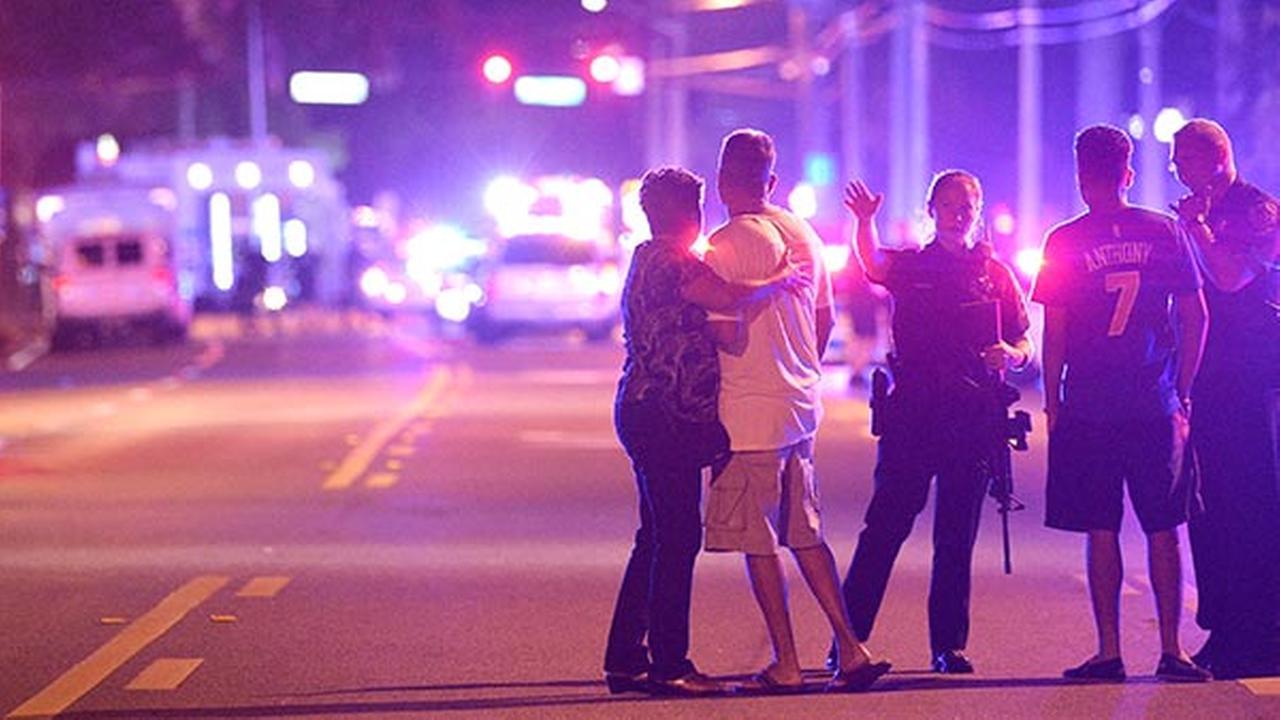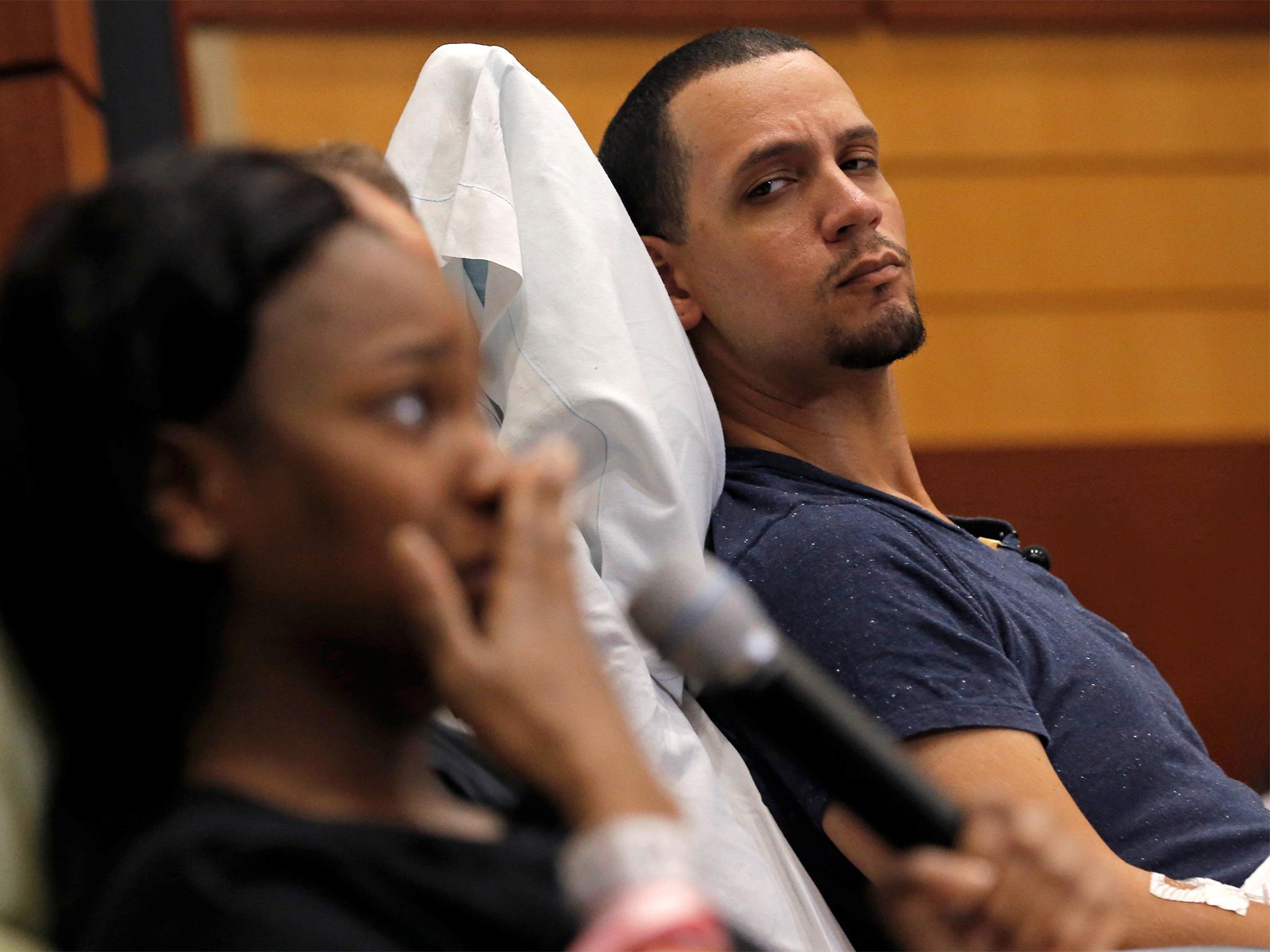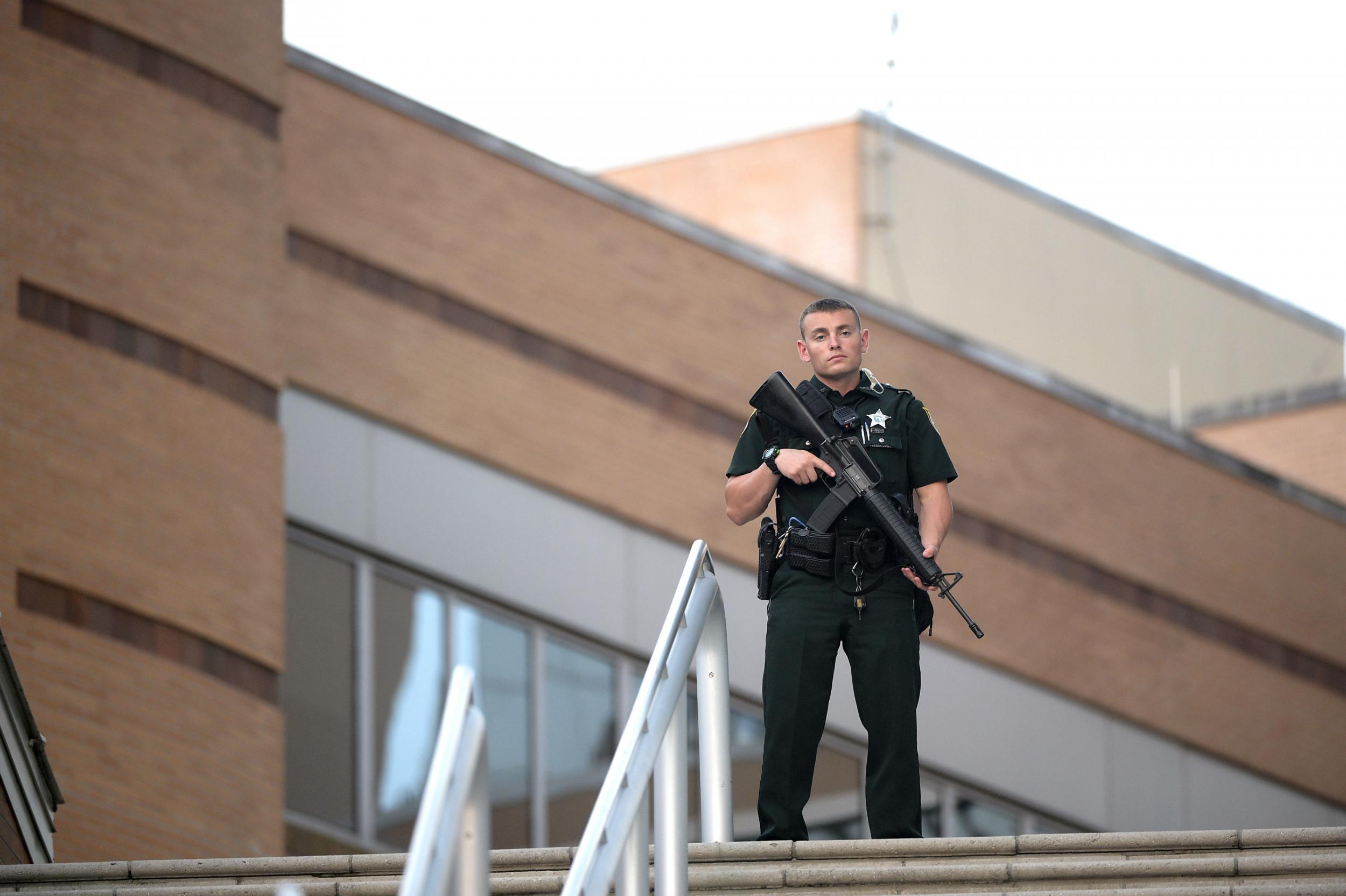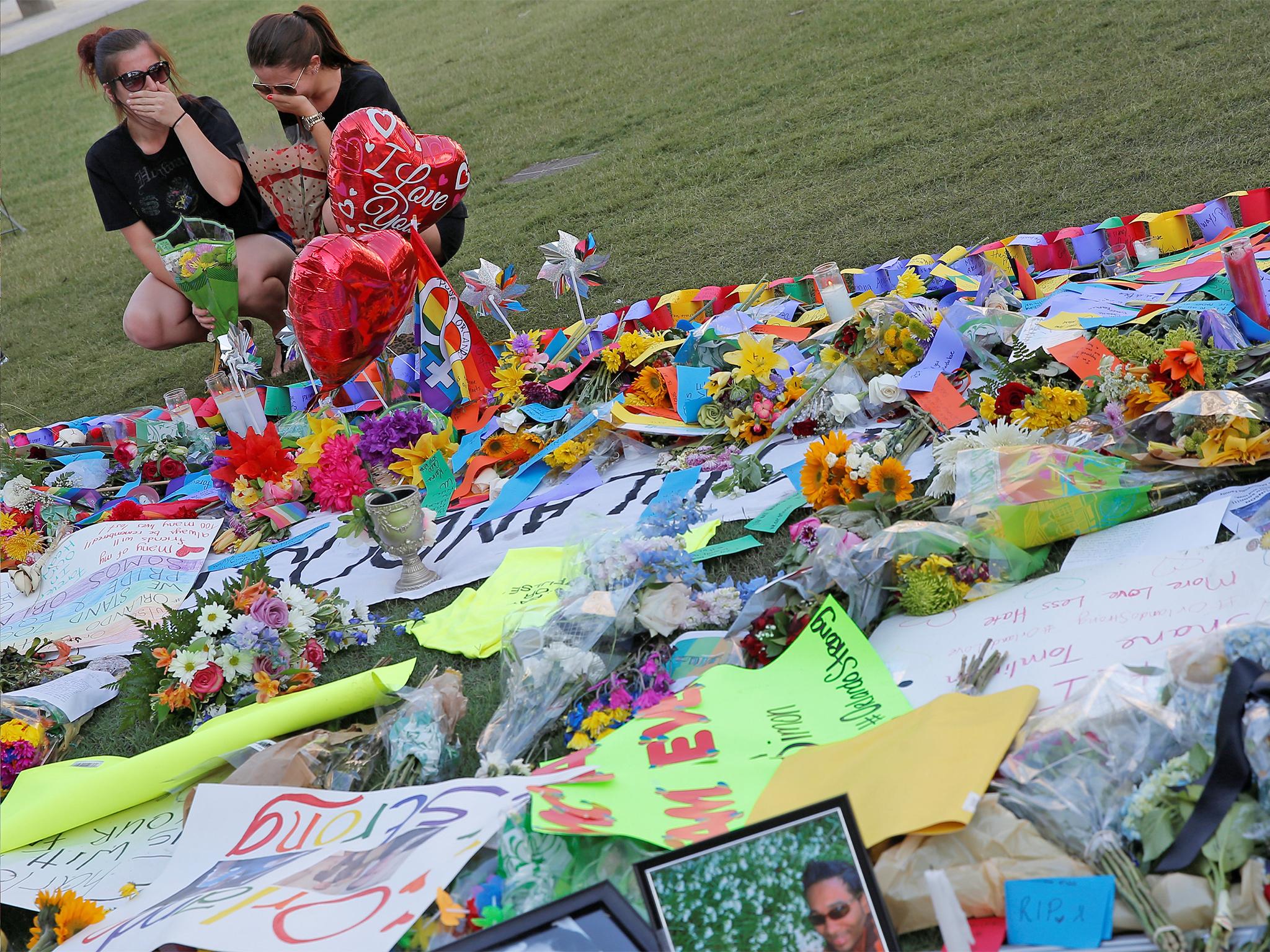Orlando hospital staff describe dealing with 'war zone' after nightclub shooting
A total of 27 people remain in hospital, six in intensive care

Your support helps us to tell the story
From reproductive rights to climate change to Big Tech, The Independent is on the ground when the story is developing. Whether it's investigating the financials of Elon Musk's pro-Trump PAC or producing our latest documentary, 'The A Word', which shines a light on the American women fighting for reproductive rights, we know how important it is to parse out the facts from the messaging.
At such a critical moment in US history, we need reporters on the ground. Your donation allows us to keep sending journalists to speak to both sides of the story.
The Independent is trusted by Americans across the entire political spectrum. And unlike many other quality news outlets, we choose not to lock Americans out of our reporting and analysis with paywalls. We believe quality journalism should be available to everyone, paid for by those who can afford it.
Your support makes all the difference.It was around 2am when staff at the Orlando Regional Medical Centre got word of ambulances heading in bearing gunshot victims. They had no idea that within moments their hospital would be transformed into what one doctor likened to “a war zone”
“We got word that there was a shooting. We didn’t know what was about to hit us,” said medical director Dr Gary Parrish.
On Tuesday, Mr Parrish and others revealed for the first time the extraordinary efforts made in the early hours of Sunday morning, as the medical team battled to save the lives of those shot and hurt in the Pulse night club. The challenge the team confronted was unprecedented at the hospital, and the doctors and nurses worked endlessly to try and save lives and treat injuries.

One thing that was of benefit to both the medical staff and the victims, was that the hospital was located just a few streets from the night club where Omar Mateen launched his attack and took on police. On the other hand, this also meant that the doctors and nurses had no time to prepare for a night they had never before experienced.
There had been Saturday nights when the hospital had treated half-a-dozen gunshot victims. There had been one night when staff had to treat 12 such cases. But there had never been something of this magnitude, they said.
Dr Kathryn Bondani said the first patient had been relatively stable and able to talk. The staff hoped that the remainder would be like that as well. It was not to be.
“They were dropped off in truckloads, in ambulance-loads,” she added. “It was like, another patient is here, another patient is here, another patient is here.”

She added: “Our amazing nurses and techs were putting them on stretchers and rolling them into us and telling us, ‘Another patient is here, another patient is here, another patient is here’.”
Chadwick Smith, the on-duty trauma surgeon, had been resting in a room at the hospital. He had completed four operations and admitted 20 people during his shift when his phone rang. It was a trainee in the emergency room asking that he come straight away.
When Dr Smith arrived he could see that he alone would not be able to deal with the scale of the attack. He called for back up, waking Joseph Ibrahim and then fellow doctors Michael Cheetham and Matt Lube.
“This is not a drill,” Mr Smith told them. “This is not a joke. We have twenty plus gunshot wounds coming in. I need you here as fast as [possible].”
He said that the response from people was stunning. “You can imagine people getting a call at two or three o’clock from work,” he said. “But I think that everyone I asked answered their phones. “I told them ‘I need you here right now’,” he said. “Every answer I got was, ‘I’ll be right there’.”
The medical staff said that within an hour, the hospital was running six operating rooms, compared to the normal two that would be running during a usual overnight shift.
The staff had difficulty decisions to make. The trauma bay quickly overflowed with patients with serious wounds, forcing doctors performing triage to move critically injured people elsewhere and focus on those whose lives were most in danger.
Reuters reported that nurses and technicians also arrived, many without being told to come, turning much of the hospital into emergency response areas.
Trauma surgeon William Havron was one of those called in, and found a hospital flooded with bloody victims with severe wounds. He called it a surreal experience.

“We were just given patient after patient after patient,” he said. “We'd literally walk from that operation room to another operating room and just do it again and again.”
Joseph Ibrahim said the hospital looked like a “war scene” with “patients in every corner”. Some had wounds from both large and small ammunition, suggesting the gunman used both his assault rifle and pistol. He said smaller ammunition had the ability to move inside a body, creating additional damage.
Among the injured was Angel Colon, 26, who had been shot three times in his leg, and his bones shattered as he was trampled in the crowd. Then he was hit again, in the hand and hip, as the gunman shot the injured, apparently “making sure they’re dead”.
Appearing in a wheelchair Tuesday at the hospital’s news conference, Mr Colon turned to the doctors and nurses and said: “I will love you guys forever.”

Mr Smith said the team worked through the early hours of Sunday morning when it received word, with the gunman having been killed and police entering the nightclub, the hospital was set to receive 20 more victims. They were forced to send to another hospital for medical supplies.
“There was a second wave,” he said. “And it was basically a repeat of the first.”
The medics said that 44 people were brought to their hospital on Sunday morning, with 11 taken to another facility in Orlando. Nine could not be saved.
As of Tuesday, 27 remained in hospital with six in intensive care, including one who was shot in the head. Two of patients in the ICU may be permanently disabled, but no patient has succumbed since the nine who were pronounced dead on arrival.
“It was singularly the worst day of my career and the best day of my career,” said Mr Smith. “And I think you can say that of pretty much every person standing up here.”
Join our commenting forum
Join thought-provoking conversations, follow other Independent readers and see their replies
Comments